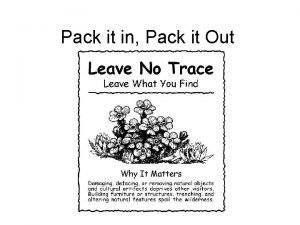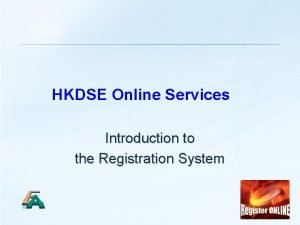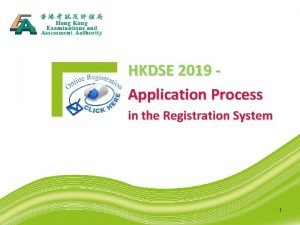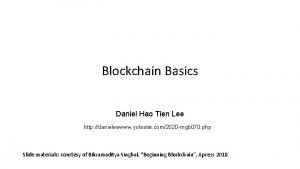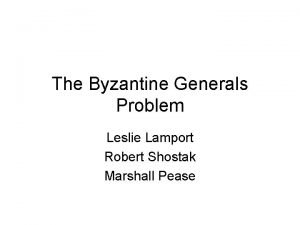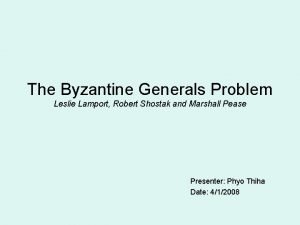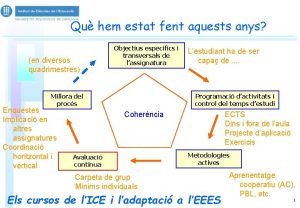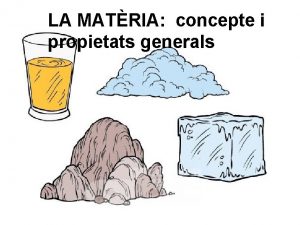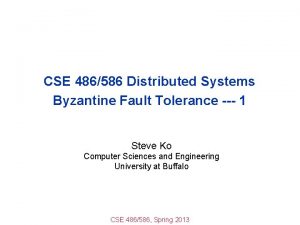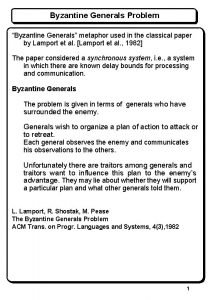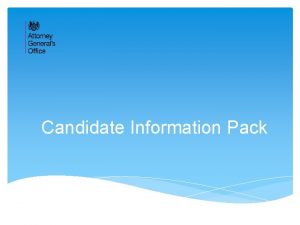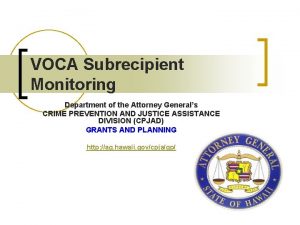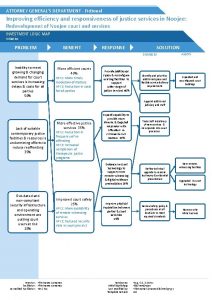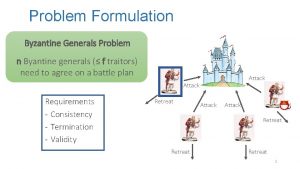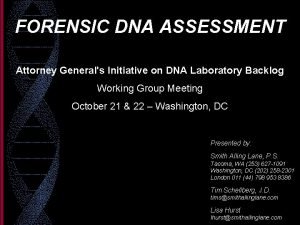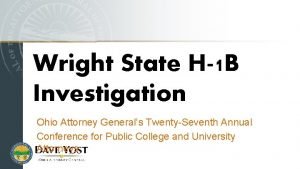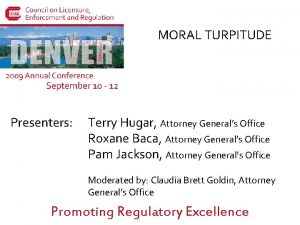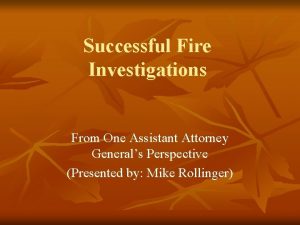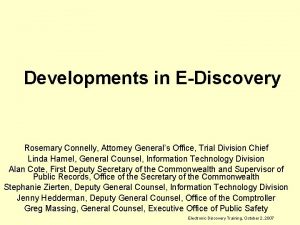Candidate Information Pack The Department The Attorney Generals

















- Slides: 17

Candidate Information Pack

The Department The Attorney General's Office (AGO) provides legal advice and support to the Attorney General and the Solicitor General (the Law Officers) who give legal advice to Government. The AGO helps the Law Officers perform other duties in the public interest, such as looking at sentences which may be too low. Operating at the heart of Whitehall, they provide confidential legal advice to the whole of Government on a huge range of issues. They oversee the Crown Prosecution Service and the Serious Fraud Office, and make decisions on a range of legal issues that often attract significant media coverage, for example applying to have the verdicts in the inquest into the 96 deaths at Hillsborough quashed or referring extremely low criminal sentences to the Court of Appeal. The Office comprises a high-performing multidisciplinary team (around half of whom are lawyers) advising and supporting the Law Officers in all aspects of their work. In the most recent staff engagement survey, the AGO scored the highest index of any department in Whitehall. Neither we nor the Law Officers can provide legal advice to members of the public or businesses. 2

AGO business plan objectives Helping deliver Government policy in the context of the Law Officers’ constitutional role in relation to the Rule of Law Defining and delivering the Law Officers’ public interest functions in the interests of the administration of justice Performing a visible and effective role as a leader in the domestic and international legal community Effective sponsorship of the Law Officers’ Departments Ensuring a high performing and efficient Attorney General’s Office which meets its legal and performance obligations 3

Previous employees say… Oli, private secretary: “The breadth of topics that AGO deals with is truly staggering, from wrestling with major constitutional challenges and criminal justice policy to national security and international strategy. With no legal background, I was unsure about applying to be the Law Officers’ private secretary. But after speaking to AGO colleagues I understood the variety of things to do in the department and how as a policy generalist I could contribute to its success. The stimulating work portfolio, high quality of staff and, above all, friendly atmosphere makes the AGO a great place to work. ” Michael, lawyer: “For a lawyer interested in politics the AGO is a gift from the gods. At AGO you are at the heart of Government. The Attorney General is the Government’s chief legal adviser and nearly everything that happens in Government will, at some point, come across the desk of the Attorney. Advising the Attorney General and other Ministers on such issues you come to recognise that there are not just legal questions in play but also key concerns both political and presentational. As a member of the AGO you need not just excellent legal skills but also political awareness, diplomatic skills and the ability to take the initiative. The AGO is a small office and by necessity you will very quickly be given a great deal of responsibility and be trusted to advise very senior officials and Ministers. It can seem intimidating at times but its a heady mix and one which I would highly recommend to anyone who wants to see the law and Government in action”. 4

Previous employees say…ctd Olivia, senior lawyer: Having the opportunity to work at the AGO on secondment from the CPS gave me a fascinating insight into a world where the law and politics interact. I greatly valued the responsibility and challenge of working closely with the Law Officers so that they could be confident in making important and often high profile decisions following consideration of my analysis and recommendations. The variety of work on offer was very valuable for my development, especially in those areas where I had to go beyond my comfort zone. With excellent knowledge management systems and a supportive environment, the AGO is a place where you can surprise yourself in what you are able to achieve. Adam, communications officer: “Working at the AGO got me involved a really varied spread of work. The small size of the office meant I worked in different areas like internal comms, stakeholder handling as well as dealing with the media and I also got good experience managing a larger team than most people of a similar grade. That meant when I went for a promotion outside the organisation I had plenty of strong examples, which ultimately helped me take the next step in my career. ” 5

Ministers and responsibilities The Attorney General Jeremy Wright QC MP The Attorney has responsibility for the rule of law. He provides advice to Government on a range of issues, including international law, EU exit, national security and counterterrorism. The Solicitor General Robert Buckland QC MP The Solicitor General supports the Attorney across the range of his responsibilities. The Attorney also advises on constitutional issues. The Solicitor refers unduly low sentences to the Court of Appeal and frequently appears in Court. He superintends the Crown Prosecution Service, Serious Fraud Office, HM Crown Prosecution Service Inspectorate and the Government Legal Department. He regularly visits CPS areas and champions pro-bono and public legal education work. The Attorney has a number of roles in the public interest, for example deciding whether to ask the High Court to consider opening a new inquest. 6 More information about what we do can be found here https: //www. gov. uk/government/ministers/attorneygeneral

About the application process 7

Civil Service Code Civil Servants are appointed on merit on the basis of fair and open competition and are expected to carry out their roles with dedication and a commitment to the Civil Service and its core values: integrity, honesty, objectivity and impartiality. In this code: • • ‘integrity’ is putting the obligations of public service above your own personal interests ‘honesty’ is being truthful and open ‘objectivity’ is basing your advice and decisions on rigorous analysis of the evidence ‘impartiality’ is acting solely according to the merits of the case and serving equally well governments of different political persuasions These core values support good government and ensure the achievement of the highest possible standards in all that the Civil Service does. This in turn helps the Civil Service to gain and retain the respect of ministers, Parliament, the public and its customers. Any applicant for a AGO vacancy should be aware of the Code, and may be asked to confirm that they can comply with it at interview. For more information on the Code, please see the following link: https: //www. gov. uk/government/publications/civil-servicecode/the-civil-service-code. 8

Preparing an application: You must show, through the application and interview process, that you have the appropriate level of knowledge, breadth of experience and, where appropriate, professional skill for the post. In most cases, you will be asked to submit an application that sets out why you are suitable for the post using the essential competency headings as your guide. Under each heading you should produce a short and snappy statement that describes one relevant example of your best achievement using 1 st person singular (‘I’ not ‘we’) taking account of any word count rule. You are advised to use the STAR model: - Situation (what was the setting and conditions, and what was your role) Task (what specifically needed to be done – when, why, etc. ) Action (what did you do – in terms of your own contribution and ensuring the contribution of others, How you did it and why) Result (What the outcome was and how you contributed to it – what difference did you 9 make)

Your Application - Key Points: The application form is your first opportunity to say why you’d be the best person for the job. It is a competition so you really need to ensure that you give your best and strongest competency-based examples to reflect what the post requires. Make it as easy as possible for the sift panel to assess your suitability for the job. This means thinking about the relevance of your examples and how you set them out in your application form. Unless told otherwise, use one example per competency and use the competency as your heading, providing your example below. Stick to the word count rule if it’s in place. Failure to provide good evidence will not get you through a sift or an interview 10

Preparing an Application - Your Checklist: q Have you given yourself enough time to put together a well thought out application form? q Have you reviewed the job description carefully so you have a clear understanding of the role? q Have you got a copy of the competency framework handy whilst your putting your examples together? q Have you chosen your most powerful and relevant examples? q Have you included the result and described your contribution/impact? q Did you draft first then refine? q Have you avoided jargon (assume that the sift panel will have no knowledge of the situation you are referring to)? q Have you checked for spelling and typos? q Have you used the past tense, ‘I’ and not ‘we’ and active language such as: ‘I organised’, ’I accomplished’, ‘I calculated’, etc. q Have you stuck to the word count limit, where one has been set? q Have you put yourself in the Vacancy Manager’s shoes and read your application through from their perspective before submitting? 11

The Sift: The purpose of a sift is to assess and score the evidence provided on the application form. The sift panel, which is made up of two or three representatives of the business, will discuss and agree standards against which they assess each application. There is a single rating scale used throughout Government, which allows candidates to compare feedback from applications made to different departments. Rating 1 2 3 4 5 6 Label Not Demonstrated Minimal Demonstration Moderate Demonstration Acceptable Demonstration Good Demonstration Strong Demonstration 7 Outstanding Demonstration Definition No positive evidence of the competency Limited positive evidence of the competency, without consistency Moderate positive evidence of the competency, without consistency Adequate positive and consistent evidence of the competency Substantial, consistent positive evidence of the competency and includes some evidence of exceeding expectation Evidence provided wholly exceeds expectation at this level You must score at least 4 for each essential competency (minimum standard). If the competition is strong, achieving a score of 4 for each competency may not be enough to secure an interview. AGO operates the Guaranteed Interview Scheme (GIS) which sees all GIS applicants meeting the minimum standard invited to interview. If applicants who consider themselves as having a disability meet the minimum criteria for the post, they get an interview automatically. 12

The Interview If you have achieved the pass mark set by the sift panel you will be invited to attend an interview. The purpose of the interview is to test your suitability for the requirements of the role and gives all candidates an opportunity to express their views and present their evidence You need to prepare well for a good interview The interview will be based on the competencies that were defined in the vacancy advertisement. If you are invited to interview further details will be provided to you about the process in advance. 13

Preparing for an Interview - Your Checklist q Read through your application form to refresh your memory of the evidence you provided q Think about how you might expand on the examples you gave at the interview q Think about other strong examples you could use q Arrange a practice interview with people your trust (friends, colleagues, current manager, etc) q Research the business and the business unit q Talk to the ‘Vacancy Contact’ about the post (see the job description for details) q Make sure you know where the interview is taking place and how to get there q Make sure you take along all requested ID documents 14

Reserve lists AGO operates a reserve list where a competition identifies more appointable candidates than there available vacancies. Any candidates who are placed on the reserve list may be contacted any time up to 12 months after the interview to discuss a possible job. Candidates will not be required to carry out further testing or interviewing. Please inform the job contact on the application form if you do not wish to be placed on the reserve list. 15

Security Clearance All new recruits to the department must meet certain security standards. All offers of employment are conditional on successful completion of security clearance. You should hold or be willing to undergo the level of clearance set out in the application form. 16

Good Luck! 17
 Pack in, pack out
Pack in, pack out Hkdse online services
Hkdse online services Hkdse 2019
Hkdse 2019 Usna candidate information system
Usna candidate information system How many generals divided alexander's empire?
How many generals divided alexander's empire? Murphy repertory rubrics
Murphy repertory rubrics Byzantine generals problem game theory
Byzantine generals problem game theory How many generals divided alexander's empire?
How many generals divided alexander's empire? Daniel 8 ram and goat
Daniel 8 ram and goat Robert shostak
Robert shostak Leslie lamport byzantine
Leslie lamport byzantine Verbs objectius d'aprenentatge
Verbs objectius d'aprenentatge Propietats generals
Propietats generals 486586
486586 Byzantine generals problem
Byzantine generals problem Byzantine general problem
Byzantine general problem Words that rhyme with phil
Words that rhyme with phil Battle of lake trasimiene
Battle of lake trasimiene
